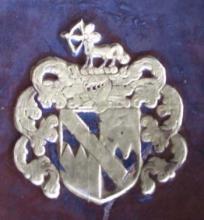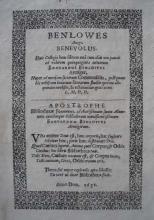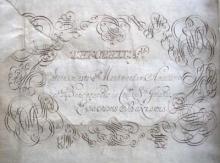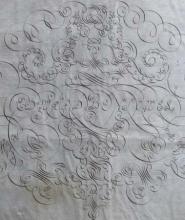Edward Benlowes (1602-1676)
The poet Edward Benlowes matriculated from St John's in 1620, staying for two years before finishing his education at Lincoln's Inn in London. After making the grand tour he settled at the family home, Brent Hall, near Finchingfield in Essex, and became a wealthy patron of the arts, particularly poetry. He often lavished gifts of books on his protégés, such as Francis Quarles, and on his old College, to which he also gave two globes. During the Civil War he played a minor role on the Royalist side, for which he was heavily fined by Parliament. He spent most of the war writing his major work of poetry Theophila, published in 1652. Owing to the fact that he had a rolling press installed in his home, Benlowes could afford to produce sumptuous engravings to embellish it. Later he was to suffer misfortune when Brent Hall burnt down, and he died in relative penury in Oxford.
Books given by Benlowes
Benlowes gave books to the value of £50 to St John's, and these are mainly theological, with a notable anti-Catholic bias (a typical title being The bloudy rage of that great Antechrist of Rome and his superstitious adherents, against the true Church of Christ and the faithfull professors of his Gospell), and poetical, including a very fine copy of his own Theophila containing seventeen engravings, "among which is the best and rarest, namely, Theophila treading on a serpent"
(from sale catalogue).
Provenance markings
Benlowes's books almost always bear his arms stamped in gilt on both covers. Frequently they also contain an extensive book label, which makes reference to his anagrammatic pseudonym, Benevolus. The copy of Theophila which he donated is apparently his own and contains two ornate manuscript inscriptions, one dedicated to the College.



